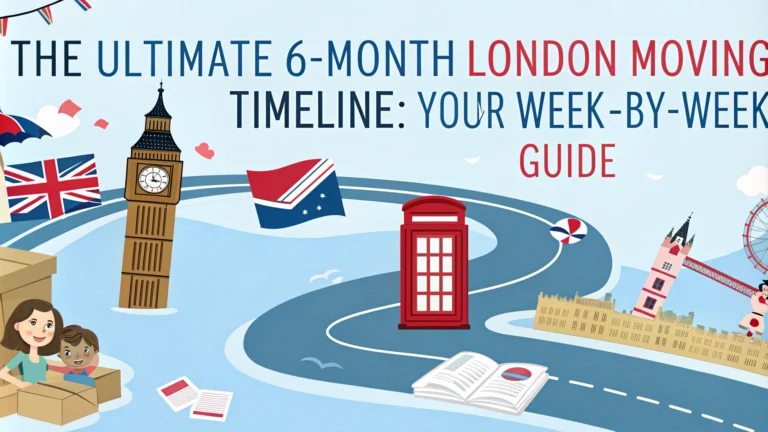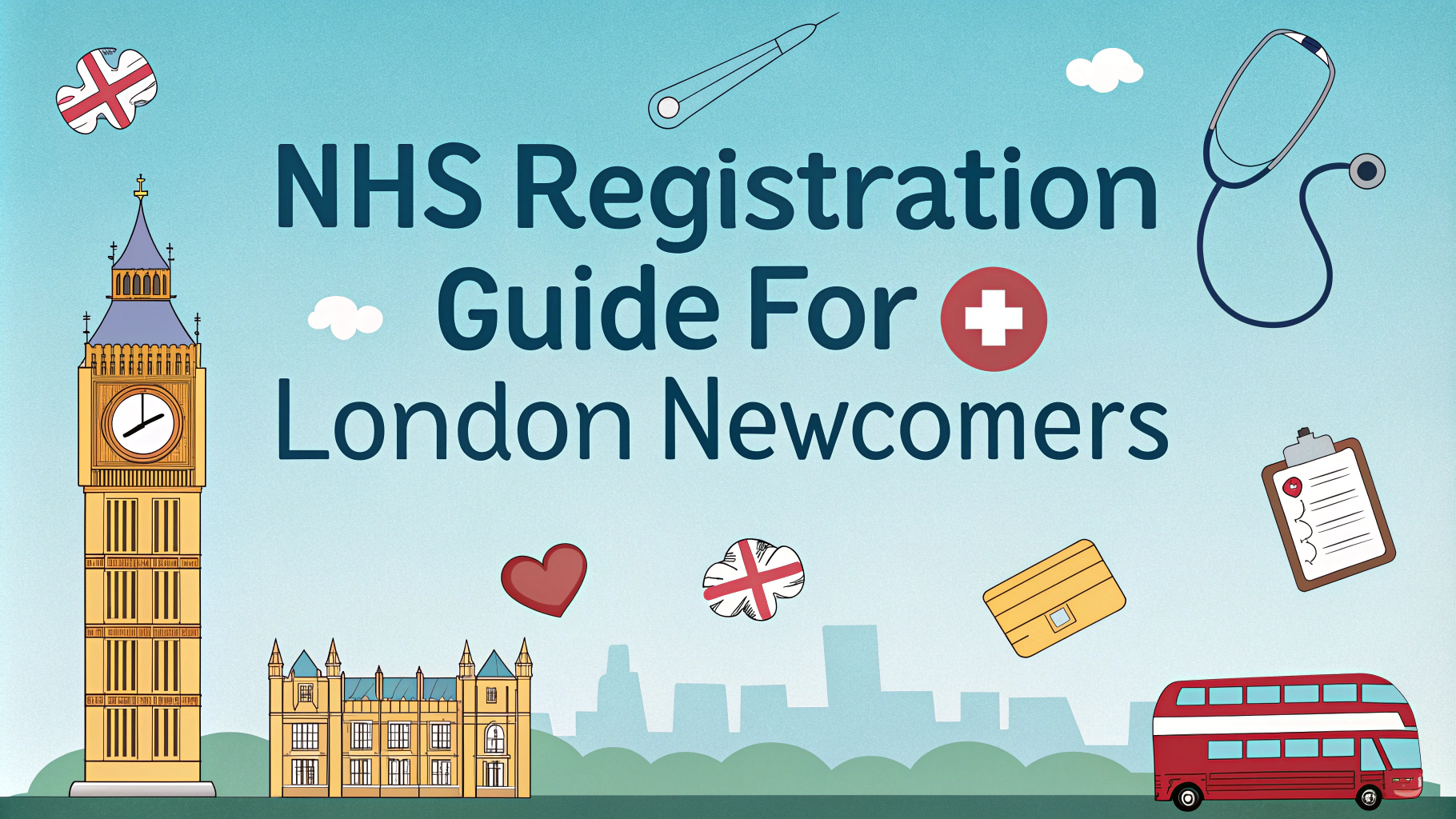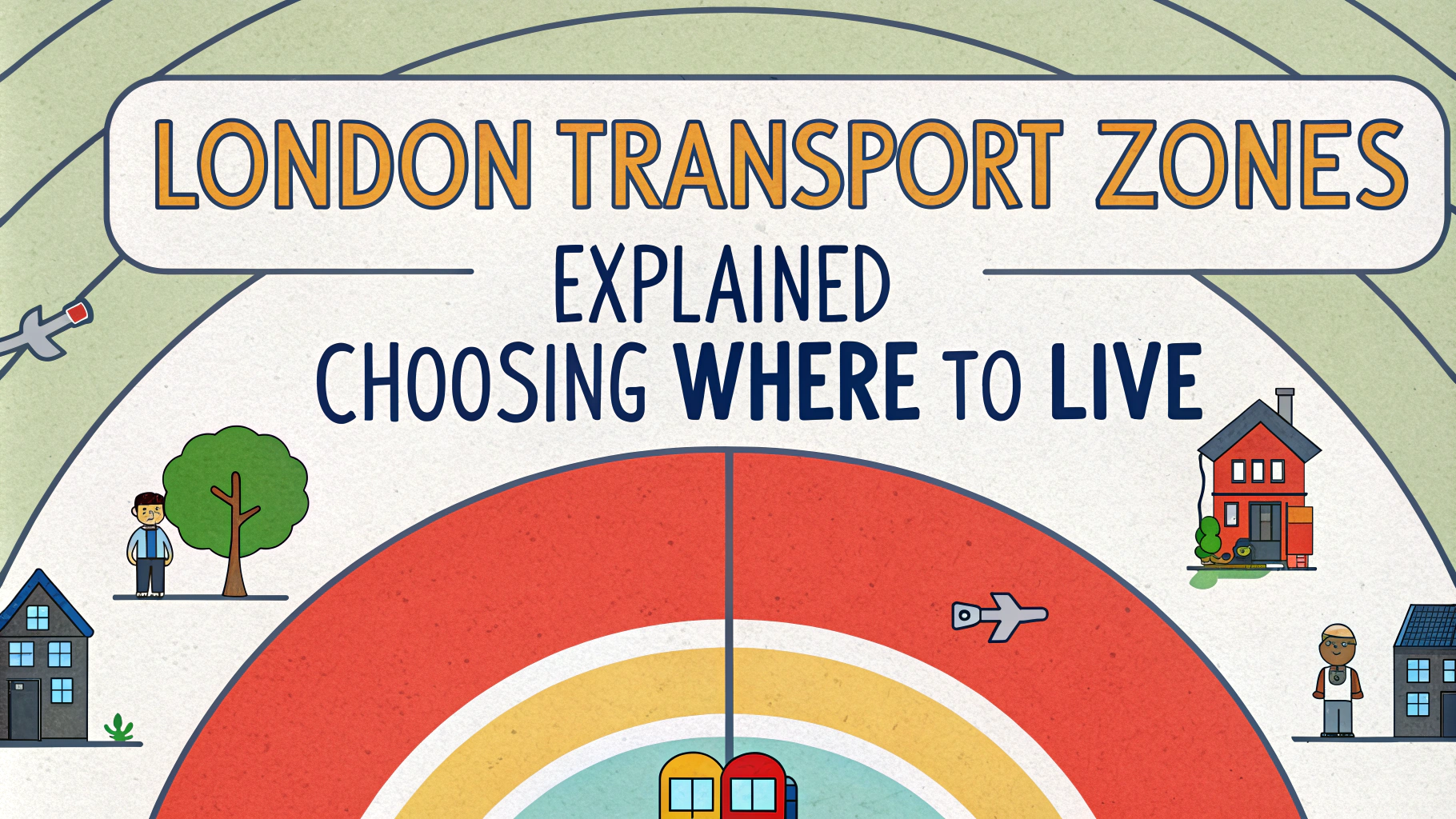Moving to or from London requires careful planning and organization to ensure a smooth transition.
This 6-month timeline breaks down essential tasks into manageable weekly chunks, helping you stay on track and avoid last-minute stress.
Follow this week-by-week guide to coordinate your London move efficiently, from securing housing to settling into your new neighborhood.
6 Months Before Moving
- Research London neighborhoods that match your lifestyle and budget
- Start browsing property listings on Rightmove, Zoopla, and OnTheMarket
- Calculate moving costs and create a realistic budget
- Begin decluttering and selling unwanted items
5 Months Before
- Contact estate agents in your chosen London areas
- Schedule property viewings (virtual or in-person)
- Request quotes from moving companies (British Association of Removers)
- Start gathering important documents (passport, visa, etc.)
4 Months Before
- Secure your new London property (rental or purchase)
- Book your chosen moving company
- Research and arrange school transfers if needed
- Begin address change notifications for utilities and services
3 Months Before
- Arrange home insurance for your new property
- Schedule utility disconnections/connections
- Register with a local GP through the NHS website
- Start packing non-essential items
2 Months Before
- Apply for a parking permit in your new borough if needed
- Set up council tax registration
- Arrange broadband installation (Compare providers)
- Book professional cleaners for both properties
1 Month Before
- Confirm moving date with all parties
- Pack remaining items and label boxes clearly
- Set up mail forwarding through Royal Mail
- Register to vote at your new address
Moving Week
- Take meter readings at both properties
- Pack an essentials box with immediate necessities
- Collect keys from estate agent or landlord
- Download apps for local transport (Citymapper, TfL Go)
First Week After Moving
- Register for a local library card
- Explore your new neighborhood
- Meet neighbors and join local community groups
- Set up your Oyster card for public transport
Key Resources for Your Move
| Service | Contact |
|---|---|
| TfL (Transport) | tfl.gov.uk |
| Council Services | gov.uk/find-local-council |
| NHS Services | nhs.uk |
Setting Up for Success
Keep this timeline handy and adjust it according to your specific circumstances and requirements.
Consider creating a digital folder to store all move-related documents and correspondence.
Remember to maintain open communication with your moving company, estate agents, and other service providers throughout the process.
Additional Moving Tips
Financial Planning
- Open a UK bank account before arrival if possible
- Research council tax bands in your new area
- Set aside funds for unexpected expenses
- Keep receipts for tax-deductible moving expenses
Transportation Considerations
- Research local parking restrictions and permits
- Familiarize yourself with London’s congestion charge zones
- Map out your commute route in advance
- Consider cycling options and bike storage
Area-Specific Preparations
Central London
- Check noise regulations and restrictions
- Research secure storage options
- Verify loading/unloading permissions
- Investigate resident parking schemes
Outer London
- Check local transport links
- Research garden maintenance rules
- Verify refuse collection schedules
- Identify local amenities and services
Documentation Checklist
| Document Type | Priority Level |
|---|---|
| ID and Passport | Essential |
| Proof of Address | Essential |
| Employment Contract | Important |
| Insurance Documents | Important |
Making London Your Home
Remember that settling into London takes time. Focus on establishing your routine gradually and exploring your new surroundings at your own pace.
Stay connected with local community groups and events to help integrate into your new neighborhood effectively.
Consider this move as an exciting opportunity to experience one of the world’s most dynamic cities, with countless possibilities for personal and professional growth.
FAQs
- How far in advance should I start planning my move to/from London?
Ideally, start planning 6 months ahead to allow enough time for visa applications (if needed), housing search, school arrangements, and logistics coordination. - What documents do I need when moving to London?
You’ll need a valid passport, appropriate visa if you’re not a UK citizen, proof of address, bank statements, job contract or proof of employment, and national insurance number (once in the UK). - How much should I budget for a move to/from London?
Budget approximately £3,000-£8,000 for a typical household move, including shipping, first month’s rent, deposit, agency fees, transportation, and initial setup costs. - Which London neighborhoods are best for families/professionals?
For families, consider Richmond, Greenwich, or Hampstead. For professionals, areas like Canary Wharf, Islington, or Clapham offer good transport links and amenities. - Do I need to register with a GP when moving to London?
Yes, you should register with a local GP (General Practitioner) as soon as possible after moving. You’ll need proof of address and identification. - How long does it take to find rental accommodation in London?
On average, allow 2-4 weeks for finding suitable rental accommodation. The process can be faster with an agent but may take longer in peak seasons. - What’s the best time of year to move to/from London?
Spring (March-May) or autumn (September-November) are ideal, avoiding peak summer rental periods and winter weather conditions. - Do I need to notify any authorities when moving within, to, or from London?
Yes, notify HMRC, your local council for council tax, electoral register, DVLA if you drive, your bank, insurance providers, and utility companies. - How do I set up utilities in my new London home?
Contact utility providers 2-3 weeks before moving. Take meter readings on move-in day, and register with providers for electricity, gas, water, internet, and council tax. - What removal company regulations should I check when moving to/from London?
Ensure the company is BAR (British Association of Removers) registered, has insurance, and provides a written quote and terms of service.








